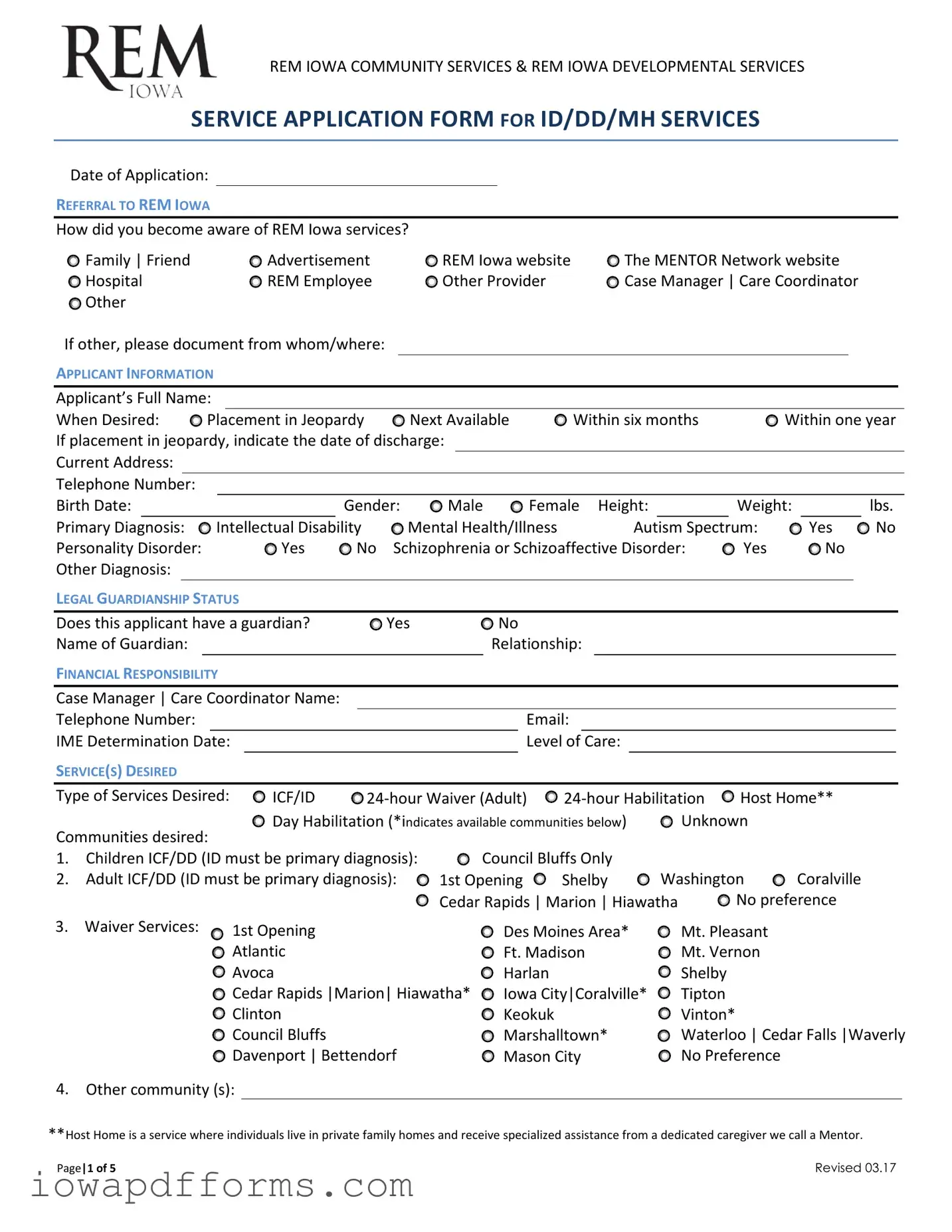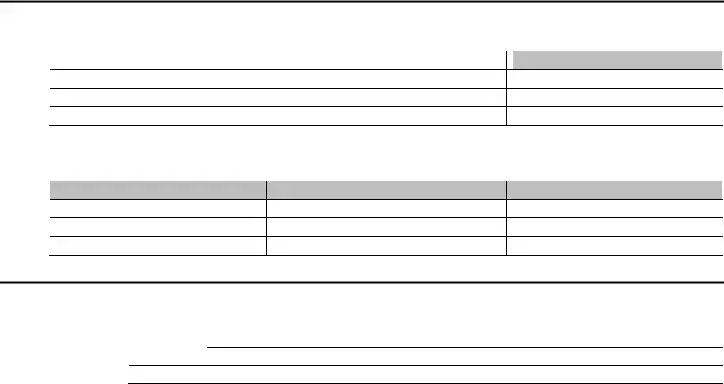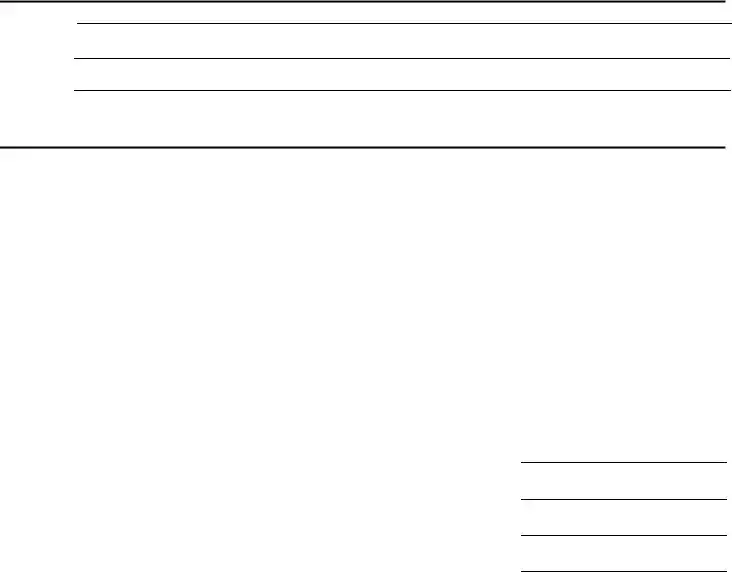The Individualized Service Plan (ISP) is a document that shares similarities with the Rem Iowa Service Application form. Both documents are designed to assess an individual's needs and preferences regarding services. The ISP outlines specific goals and objectives tailored to the individual, ensuring that the services provided align with their unique circumstances. Like the Rem Iowa form, the ISP requires detailed personal information, including medical history and current living situations, to develop a comprehensive plan for care and support.
When dealing with the sale of a trailer, having a properly executed Trailer Bill of Sale form is essential to ensure a smooth transaction. This legal document not only records the sale and transfer of ownership but also provides a comprehensive record that details the terms of the sale, including the identities of both the buyer and seller. For those looking to formalize the sale process, it is highly recommended to visit https://billofsaleforvehicles.com/editable-trailer-bill-of-sale/ for a customizable template that suits individual needs.
The Application for Benefits is another document that parallels the Rem Iowa Service Application. This form is used to determine eligibility for various assistance programs. Both forms require personal details, financial information, and medical history to evaluate the applicant's needs. The Application for Benefits focuses on financial assistance, while the Rem Iowa form emphasizes service eligibility, but both aim to ensure that individuals receive the support they need.
The Medicaid Application is similar to the Rem Iowa Service Application in that it seeks to gather information to establish eligibility for services. Both documents require applicants to provide personal information, including income and medical conditions. The Medicaid Application specifically assesses financial eligibility for healthcare services, while the Rem Iowa form focuses on identifying the appropriate community services for individuals with developmental disabilities or mental health issues.
The Case Management Referral Form also shares commonalities with the Rem Iowa Service Application. This form is utilized to initiate the case management process, gathering essential information about the individual’s needs. Both documents require detailed personal data and history of services received. The Case Management Referral Form is more focused on connecting individuals to appropriate resources, while the Rem Iowa form is centered on applying for specific services.
The Health Assessment Form is another document that aligns with the Rem Iowa Service Application. Both forms collect comprehensive health information to evaluate the applicant’s needs. The Health Assessment Form typically includes questions about medical history, medications, and any disabilities. This information is crucial in determining the appropriate level of care and services, similar to the goals of the Rem Iowa application.
The Family Support Application is comparable to the Rem Iowa Service Application in that it seeks to understand the family dynamics and support systems of the individual. Both documents require information about family members, their roles, and any financial assistance received. The Family Support Application focuses more on the family’s ability to provide care, while the Rem Iowa form emphasizes the individual’s specific service needs.
Finally, the Service Coordination Plan bears resemblance to the Rem Iowa Service Application. This plan outlines the coordination of services for individuals with disabilities, ensuring that all aspects of care are addressed. Both documents require detailed information about the individual's needs, preferences, and current services. The Service Coordination Plan emphasizes the collaboration between various service providers, while the Rem Iowa form focuses on the application process for specific community services.






